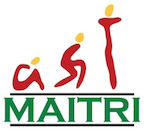Who We Serve
Violence in any form, physical, sexual, mental or emotional is wrong and no one has to suffer in silence. Domestic violence can happen to anyone irrespective of gender, race, age, economic status or sexual orientation. No one deserves to be abused.
Maitri primarily helps individuals & families from South Asia facing domestic violence, emotional abuse, cultural alienation, human trafficking or family conflict. Maitri is non-discriminatory in its services with respect to gender, race, color, religion, age, national origin, disability, sexual orientation and all classifications protected by applicable state or federal discrimination laws.
Women & Men
1 in 4 women and 1 in 9 men have experienced severe intimate partner physical violence resulting in injury, fearfulness, post-traumatic stress disorder, use of victim services, contraction of sexually transmitted diseases, etc.
85% of domestic violence victims are women
In one year 6.6 million people are victims of stalking. In one year, 66% of female victims and 41% of male victims are stalked by an intimate partner
On average, a victim attempts to leave 7 times before finally leaving for good.
The most lethal time in an abusive relationship is after a victim leaves. More than 70% of domestic violence murders happen after the victim has gotten out
Abusive relationships always involve an imbalance of power and control. An abuser uses intimidating, hurtful words and behaviors to control his or her partner.
LGBTQ+
43.8% of lesbian women and 61.1% of bisexual women have experienced rape, physical violence, and/or stalking by an intimate partner at some point in their lifetime, compared to 35% of heterosexual women.
26% of gay men and 37.3% of bisexual men have experienced rape, physical violence, and/or stalking by an intimate partner in their lifetime, in comparison to 29% of heterosexual men.
In a study of male same sex relationships, only 26% of men called the police for assistance after experiencing near-lethal violence.
Both hetero sexual and LGBTQ victims of domestic violence share many common characteristics including physical, emotional, financial and sexual mistreatment
Some distinctive features of domestic violence in LGBTQrelationships include:
“Outing” their partner to work colleagues, family, and friends before the partner is ready
Reluctance to report abuse to legal authorities because they may have to reveal their sexual orientation or gender identity
Fear that society will perceive same-sex relation-ships as inherently dysfunctional.
Chances that law enforcement to conclude that the fighting was mutual, overlooking the larger context of domestic violence and the history of power and control in the relationship as same sex victims are more likely to fight back than heterosexual women
Fear that they may lose the children since adoption laws may not allow same-sex parents to adopt each other’s children.
Elders
Elder abuse has all the elements that we see in domestic violence situations – physical abuse, sexual abuse, financial abuse, emotional abuse, of course, and in the immigrant community, in a very pervasive way, immigration related abuse.
Within the South Asian community, there is silence surrounding this issue. The reasons are many including:
Shame
Economic and legal ( immigration) dependency
Reluctance to take action against their own children
Fear of abandonment in the home country
Limited laws in the home country to protect the rights of elders
May distrust the police / Criminal Justice System
Teens
Dating abuse is a pattern of abusive behavior where one partner tries to control and dominate the other.
One in three teens in the US is a victim of physical, emotional or verbal abuse from a dating partner, a figure that far exceeds rates of other types of youth violence.
Girls and young women between the ages of 16 and 24 experience the highest rate of intimate partner violence, almost triple the national average
Violent behavior often begins between the ages of 12 and 18
Teens also face Family Violence where they are controlled by their families and not given a choice when it comes to marriage. Forced marriage affects many young South Asians.
Maitri engages teens and young adults in education and building awareness around dating violence. If you are a teen facing violence, please call




